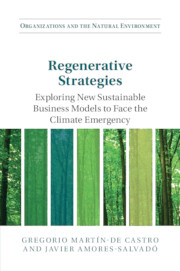
- Cited by 1
-
Cited byCrossref Citations
This Book has been cited by the following publications. This list is generated based on data provided by Crossref.
Novak, Inna Klymenko, Lidiia Shkolnyi, Oleksandr Dluhoborska, Liudmyla Zagorodniuk, Oksana Chukina, Ivanna and Halahur, Yuliya 2024. Navigating the Technological Tide: The Evolution and Challenges of Business Model Innovation. Vol. 1082, Issue. , p. 289.
- Publisher:
- Cambridge University Press
- Online publication date:
- March 2024
- Print publication year:
- 2024
- Online ISBN:
- 9781009261920


